Why Is My Baby Sleeping With Eyes Open? Hint: It’s Normal
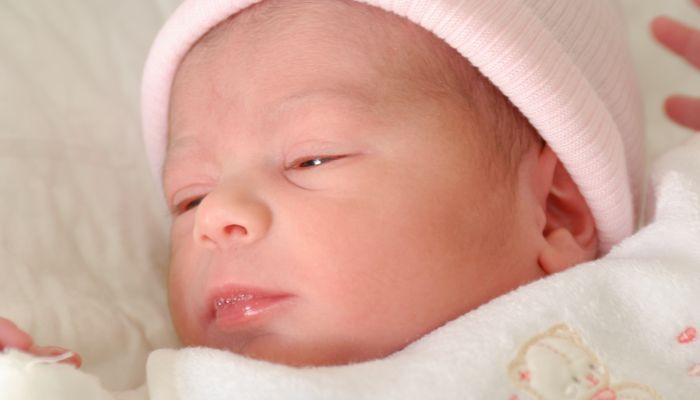
- Some babies may sleep with their eyes partially or fully open.
- Sleeping with their eyes open is generally harmless for most babies and is normal, even if it looks odd at first.
Watching your baby sleep can be one of the most precious joys of parenting, but don’t panic if you notice your baby sleeping with their eyes open. It’s generally safe, it’s normal, and while it might surprise you or look a little strange, it isn’t something you should be worried about.
Most babies sleep with their eyes closed, but sleeping with eyes open or partially open is normal for babies to do. In most cases, there should be no cause for concern. Although it may look odd, it doesn’t necessarily mean that your baby has a sleep problem.
Eyelids that are partially open during sleep are actually pretty common among young infants. It happens mainly during the REM, or rapid eye movement, stage of active sleep.
Why Do Babies Sleep With Their Eyes Open?
While babies usually sleep with their eyelids closed to block out light and to keep their eyes moist, there are a few reasons your baby’s eyes may be open during sleep:
- Heredity. Part of the reason for open-eyed sleep may be genetic. If there is someone in your family known to sleep with their eyes open, your baby may have inherited this trait too. You and your partner should also check whether either of you tends to fall asleep with open eyes, as you may also have the trait without realizing it.
- Development during REM stage sleep. Everyone’s eyes move when we sleep during the rapid eye movement stage. Usually, sleeping with eyes open tends to happen at this point in the sleep cycle.
Babies’ brains and nervous systems are still developing, and they spend much more of their sleep time in this stage than adults do. A baby’s eyes move much more in their sleep as a result, and this is when parents are likely to notice that their baby’s eyes seem open during sleep.
- Medical conditions. According to the Pediatric Sleep Council, health issues related to sleeping with open eyes are rare in infants. If your baby also has trouble closing their eyes while awake during the day or has dry, red, or irritated eyes after waking up, you should consult a pediatrician.
In rare cases, sleeping with open eyes may be due to birth defects affecting your baby’s eyelids. Sleeping with open eyes may also indicate a medical condition such as facial nerve damage, thyroid problems, or even some kinds of tumors. But these conditions usually affect adults.
What if My Baby Is Sleeping With Eyes Open and Moving, Smiling, or Blinking?
Other behaviors that parents may notice during sleep (in addition to open eyes) include moving, smiling, laughing, or blinking. These behaviors are typically reflexes in young infants, though parents often like to think they’re responses to dreams and memories.
These actions are also most likely to occur during the REM stage of active sleep and are all a part of your baby’s development. However, if you notice that your baby is doing these activities for long periods during sleep or that excessive movement is disturbing their sleep, consult with their doctor.
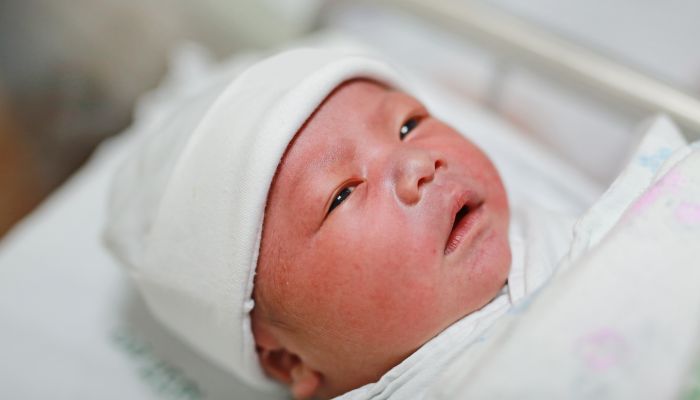
Does Sleeping with Eyes Open Mean My Baby is Having a Seizure?
It’s very unlikely that sleeping with their eyes open means that a baby is having a seizure. [Editor’s note from Amber: Anecdotally, our son was diagnosed with a rare form of sleep seizure called electrical status epilepticus in sleep (ESES) when he was young, but sleeping with his eyes open was not one of the symptoms he displayed.]
According to Cedars-Sinai, seizures during sleep are a part of some medical conditions, but these are usually accompanied by different symptoms, such as jerky movements, stiff arms or legs, loss of bladder control, and tongue biting, rather than open-eyed sleeping.
Other rarer conditions like ESES often display no obvious outward indicators while the seizure is occurring, and can only be diagnosed via electroencephalography (EEG) exam.
Of course, if you are ever concerned about your baby’s sleep behavior or suspect they are having seizures while awake or asleep you should talk to your pediatrician. If your child is indeed diagnosed with a form of epilepsy, there are several devices to monitor seizures in children available.
Do Blind Babies Sleep with Their Eyes Open?
There’s no evidence showing that sleeping with eyes open happens more with blind children. Usually, it’s caused by genetics or brain activity during sleep rather than visual impairment.
[Editor’s note from Amber: In our experience, sleeping blind babies are no more likely to do this than sighted children are. Again, our son is blind but didn’t (and doesn’t) sleep with his eyes open.]
FAQs
Should I close my baby’s eyes if they’re open during sleep?
If you find your baby’s eyes are open during sleep, it’s not necessary to do anything unless you think their eyes are dry or irritated. But if it makes you feel more comfortable to close their eyes, wait until your baby is fast asleep. Then you can gently use your fingers to guide their eyelids closed.
Will my baby’s eyes dry out if they sleep with them open?
Your baby’s eyes may feel dryer if they sleep with them open for longer periods. You can place a humidifier in the room where they are sleeping to help keep moisture in the air if you’re concerned. If you think their eyes are very dry or irritated ask your pediatrician whether they might need drops or ointments that are safe for a baby’s eyes.
What is nocturnal lagophthalmos?
Nocturnal lagophthalmos, also known as physiological lagophthalmos, is the medical term for sleeping with open eyes. Infants generally outgrow this condition. However, the American Academy of Ophthalmology says that lagophthalmos in adults can indicate more serious health problems that may need medical attention.
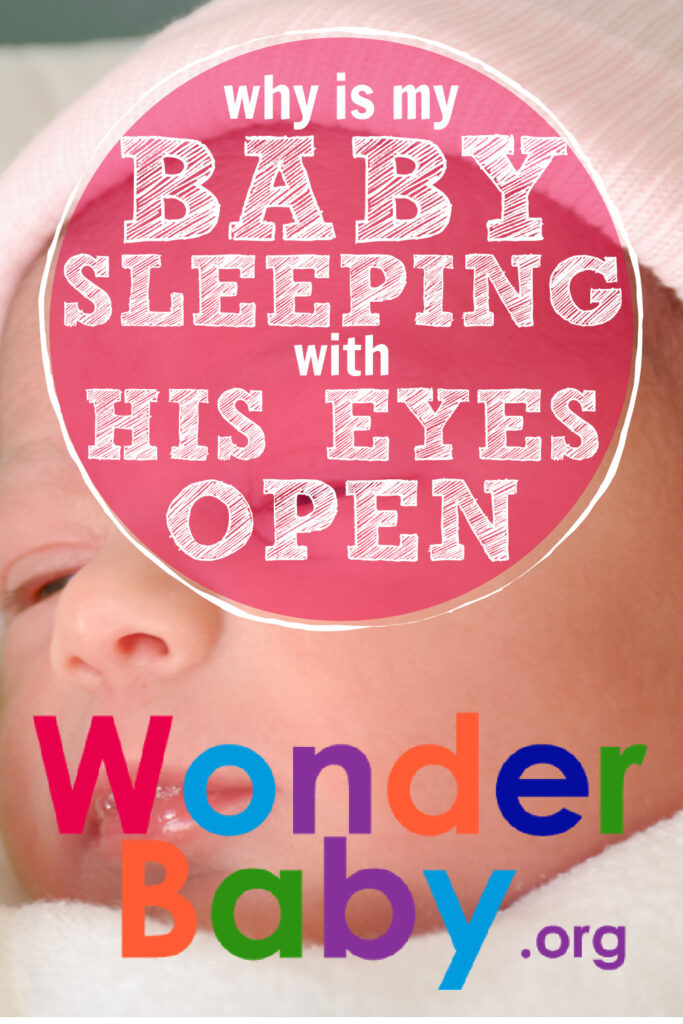
The information WonderBaby provides is not intended to be, and does not constitute, medical or other health advice or diagnosis and should not be used as such. Always consult with a qualified medical professional about your specific circumstances.
Related Posts
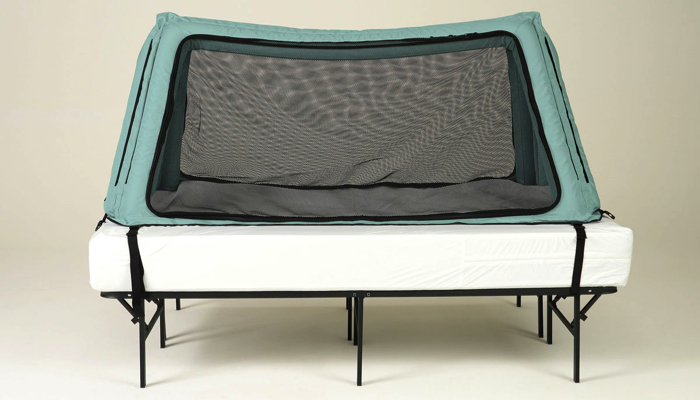
Sleep, Special Needs
Safe Place Bedding Travel Bed Review
Traveling with a special needs child can be stressful! Having a safe, durable, and easy to use travel bed can make traveling so much easier!
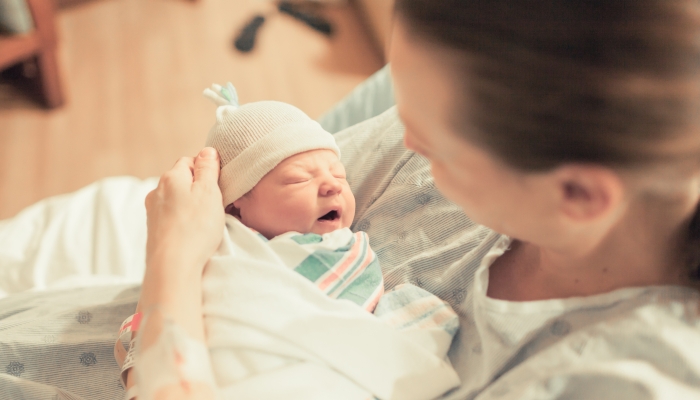
Sleep, Special Needs
Sleep Regimen for Premature Babies: Special Considerations
It can take premature babies much longer than their full-term peers to sleep for long stretches. A preemie sleep schedule may encourage better sleep.
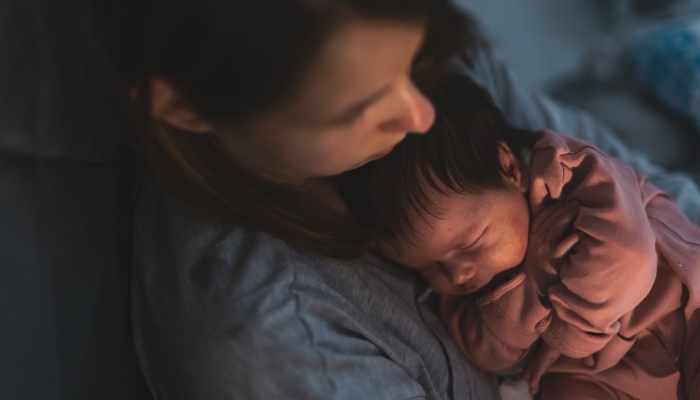
Sleep
Mastering the Bedtime Routine: 3 Tips for a Peaceful Night’s Sleep
From around six weeks, a newborn bedtime routine can help your baby learn the difference between day and night and prepare for a restful night’s sleep.